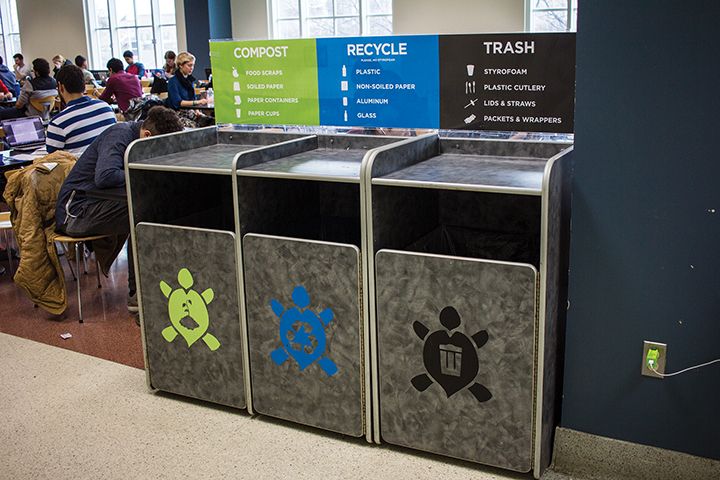Views expressed in opinion columns are the author’s own.
The United Nations’ recent report on climate change has made one thing clear: We have to take personal responsibility for our individual carbon footprints, and we have to do it fast. With the current administration, environmental policy has been quickly moving in the wrong direction — the Arctic was opened up to offshore oil drilling, we pulled out of the Paris Climate Agreement and the Environmental Protection Agency has repealed several regulations on air quality, water pollution and carbon emissions.
The University of Maryland has made it clear that it values student education on alcohol and drug safety. All incoming freshmen must take AlcoholEdu online, and every student in Greek Life has to take a similar GreekEdu training each year.
If we want to become a green campus and help students learn what they can do to make an impact, we should implement similar training as a yearly requirement for every student: GreenEdu.The sustainability committee of the Residence Hall Association is currently developing such a program.
A lot of students seem to hate AlcoholEdu or find it inconvenient. But at the end of the day, it works. According to a study on AlcoholEdu’s effects on college campuses, the schools that implemented AlcoholEdu saw a significantly lowered risk of alcohol problems among freshmen compared to a control group that didn’t implement the program.
A study from the National Union of Students found that about 80 percent of students want their schools to do more to improve sustainability, and about 60 percent of students want to learn more about sustainability.
We’ve all heard it a million times — reduce, reuse, recycle. However, it’s hard to measure your own individual impacts. What difference does one straw make? Does it really matter if you spend an extra five minutes in the shower? Students care, they just need more information and tangible examples of what they can do to help.
There are a lot of ways that you can minimize your carbon footprint: riding a bike to work or school, maintaining a plant-based diet, buying products packaged in recyclable materials or even minimizing shower time. It’s not, however, a black-and-white dichotomy.
One way to go green is by eating less meat. It doesn’t have to be a rule or a personal identifier, it can just be a simple daily choice. Cow meat requires about 28 times more land and 11 times more water to produce than pork or chicken. It’s an astonishing statistic to think about, and the type of thing that students should know, particularly when they’re on a campus meal plan and have access to so many types of protein and diet options for every meal — even one burger can make a difference.
It’s vital for students to see what their personal footprint is and how making simple adjustments to their daily living habits can actually have a substantial difference. Another example is showering — the standard shower head uses 2.5 gallons of water per minute. Showering just five minutes less per day will save 4562.5 gallons of water each year.
This doesn’t mean showering a few extra minutes or eating less beef is going to save the world; we need real government action and policy changes to slow rapidly increasing carbon emissions, but we can’t have one without the other.
A mandatory online sustainability training is not only important for providing information and education — it also creates a sustainable culture. By reading about sustainability and being quizzed about simple tasks that reduce one’s environmental footprint, students are exposed to the idea of sustainability and are more likely to make the simple changes in their daily lives.
The culture and “norms” of a campus have a big influence on individual action — just watching someone in front of you take the time to sort their recycling and compost in Stamp makes it that much more likely that you will, too. Implementing sustainability training not only shows that the students and faculty at this school care about the future and the environment but could also have a lasting impact on campus and the carbon emissions we as a student body release each year.
Alyssa McKinney is a sophomore electrical engineering major. She can be reached at alyssa.cmck@gmail.com.



